
Testosterone Test
About Testosterone Test
A testosterone test is used to determine the amount of testosterone in a blood sample.
Testosterone is the hormone responsible for controlling fertility and sperm development in men. In males, it is essential for the development of male sex characteristics such as a deeper voice, muscle development, and hair growth. Females have testosterone in small amounts that influences the overall growth, development of muscle and reproductive tissues. Testosterone is made by the testicles in males, it is part of the male reproductive system that produces sperm. In females, ovaries produce small amounts of testosterone; an ovary is a female reproductive part that makes eggs. The adrenal glands, organs on top of each kidney produces the hormone dehydroepiandrosterone (DHEA), which is transformed into testosterone and estrogen.
Functions of testosterone in males
- Increases height
- Important for body/facial hair growth
- Enlarges penis, testes, and prostate gland
- Increases sex drive
- Sends signals to the body to make new red blood cells
- Ensures the strength of bones and muscles
Testosterone test is used to diagnose various health conditions in children and adults. Doctors use this test to monitor hormone levels in patients placed on testosterone replacement therapy and transgender men receiving hormone therapy. Thus, getting your testosterone test is recommended to detect hormone levels related diseases like erectile dysfunction, fertility problems, osteoporosis (weakening of bones) etc.
Symptoms of low testosterone levels in males

Low sex drive

Erectile disfunction (difficulty in getting a penis erection)

Enlarged breasts

Lack of facial or body hair

Weakening of bones
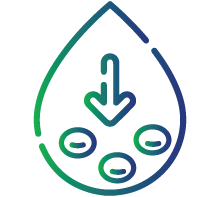
Anaemia
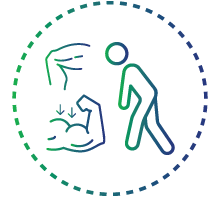
Loss of muscle mass
Symptoms of high testosterone levels in females

Increased facial and body hair

Hair loss on the head

Irregular or no menstrual periods

Voice changes
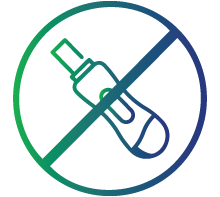
Infertility
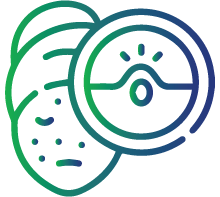
Acne
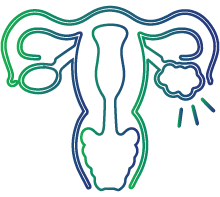
Polycystic Ovary Syndrome (PCOS)
What does a testosterone test measure?
Blood tests measure the following different forms of testosterone.
Total testosterone test
-
Used to measure free testosterone and bound testosterone. Bound testosterone is testosterone that is attached to proteins like albumin or Sex Hormone-Binding Globulin (SHBG). This test is more common.
Free testosterone test
-
Used to measure only the "active" form of testosterone. Free testosterone is all the remaining testosterone that is not bound to other substances. This test is less common.
Bioavailable testosterone test
-
Used to measure free testosterone and testosterone that's loosely attached to a blood protein called albumin.
When should someone get tested?
Testosterone tests can be done for many reasons including:
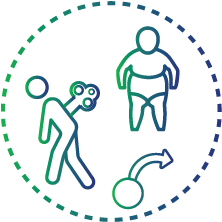
Diagnosing the cause of symptoms that could be from abnormal testosterone levels
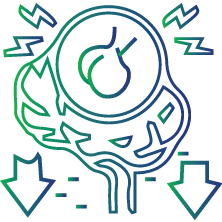
To find out the cause of early puberty/delayed puberty in children and teens
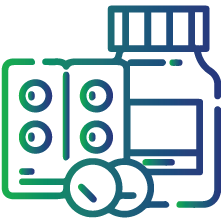
Checking on medications that may affect testosterone levels
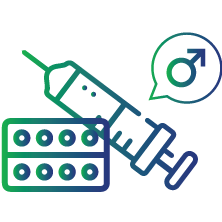
Monitoring the health of transgender man receiving masculinizing hormone therapy
Test preparation
This test is done early in the morning when testosterone levels are high. Some medications can also affect the testosterone levels, so be sure your doctor is aware what prescription drugs, over-the-counter medicines, or dietary supplements you are taking. Ask your doctor about pretest preparations, and make sure to follow instructions carefully. Testosterone levels fluctuates often therefore tests are usually repeated if low or high values are found.
Interpretation of results
|
Parameters |
Normal testosterone levels |
|
249 - 836 ng/dL |
|
|
Total testosterone in men (ages 50 and older) |
193 - 740 ng/dL |
|
Total testosterone in women (ages 19 yrs– 49yrs) |
8 - 48 ng/dL |
|
Total testosterone in women (ages 50 and older) |
2 - 41 ng/dL |
Deviation from normal levels indicates the following:
- In males, low testosterone levels might be because of different conditions, including chronic liver, or kidney disease, pituitary gland disorder, benign tumours, damage to the testicles, alcohol use disorder, and certain genetic diseases such as Klinefelter syndrome.
- In males, high testosterone levels may be caused by a tumour in the testicles, steroid use, and adrenal gland disorders like congenital adrenal hyperplasia (CAH).
- In females extremely low testosterone may be a sign of adrenal gland, a pituitary gland, or an ovarian disorder.
- In females, high testosterone levels may be caused by PCOS, ovarian cancer, CAH, and pituitary gland disorders.
FAQs
How is a testosterone test performed?
A blood sample is collected from a vein in your arm using a small needle. This entire process requires less than five minutes.
What are the risks involved in a testosterone test?
This test involves negligible risk. There might be slight pain or tenderness around the site where the needle went in. Rarely, the site can become infected.
What can the testosterone results tell?
The testosterone results can tell whether you have normal, high, or low testosterone. A normal testosterone level will depend on your gender and age. This test result can help doctors make a diagnosis or monitor treatment.
Should women take a testosterone test?
Female experiencing high or low testosterone symptoms should consider taking a testosterone test. Abnormal testosterone levels in females can be a sign of health issues such as PCOS, or infertility issues. In some cases, low testosterone in females may be caused due to low estrogen or menopause. A testosterone test and other hormone tests can help doctors give a diagnosis.
How to treat abnormal testosterone levels?
Your doctor will recommend the most appropriate treatment based on your medical condition. The common treatment for low testosterone is testosterone replacement therapy (TRT); it is administered as a skin patch, a topical gel or an injection containing testosterone. Other treatments options include testosterone pellet implants and oral testosterone supplements

